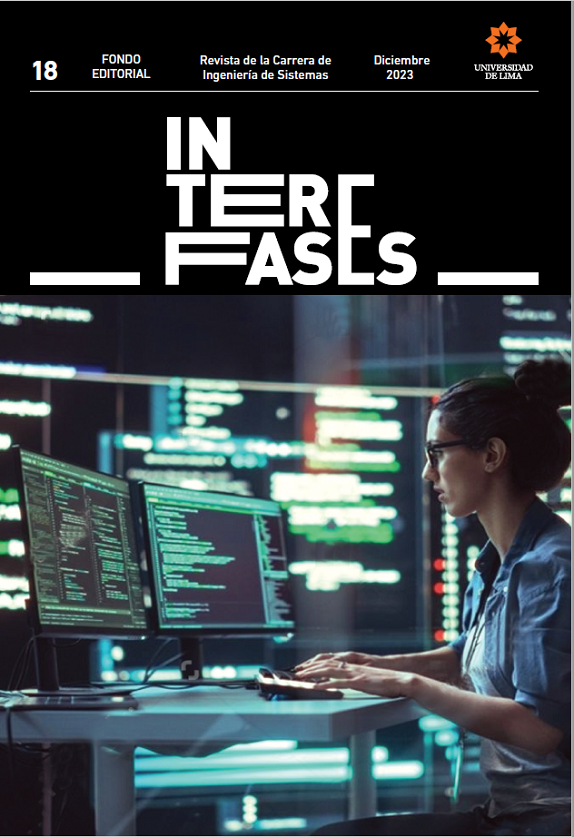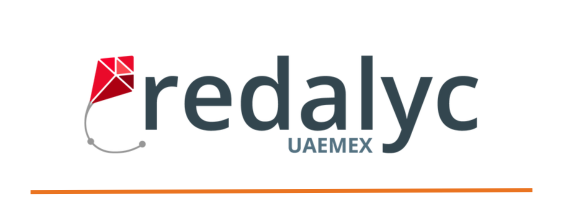Towards an Ontology to Structure Data on Women's Leadership in Computing in Brazil
DOI:
https://doi.org/10.26439/interfases2023.n018.6607Keywords:
women in computing, ontology, gender dataAbstract
This paper proposes an ontology to structure data on female leadership in computer science in Brazil, with the goal of building an open and collaborative platform where data can be collected, organized, and classified to construct a folksonomy of the domain. The ontology aims to address competency questions in the domain, such as the contextual factors that motivate Brazilian women to pursue leadership positions in computer science, and the policies that promote such opportunities. The proposed ontology may benefit various users, including female computer science professionals, leaders, researchers, and policymakers.
Downloads
References
Allam, H., Bliemel, M., Al Amir, O., Toze, S., Shah, K., & Shoib, E. (2020). Collaborative ontologies in social tagging tools: A literature review of natural folksonomy. In 2020 Seventh International Conference on Information Technology Trends (ITT), Abu Dhabi, United Arab Emirates (pp. 126-130). https://doi.org/10.1109/ITT51279.2020.9320894
Batista, L., & Mattos, L. (2019). Sem atalhos: Transformando o discurso em ações efetivas para promover a liderança feminina. Bain & Company and LinkedIn. https://www.bain.com/contentassets/e4fcb1f4478f49658dacdbcfe326b07e/bain_linkedin_liderancafeminina_sematalhos.pdf
Grant Thornton. (2022). Women In Business 2022: Abrindo portas para a diversidade de talentos. Grant Thornton International Ltd. https://www.grantthornton.com.br/insights/artigos-e-publicacoes/women-in-business-2022
Guy, M., & Tonkin, E. (2006). Folksonomies: Tidying up tags? D-Lib Magazine: The Magazine of the Digital Library Forum, 12(1). https://doi.org/10.1045/january2006-guy
Hamilton, M., Luxton-Reilly, A., Augar, N., Chiprianov, V., Gutierrez, E. C., Duarte, E. V., Hu, H. H., Ittyipe, S., Pearce, J. L., Oudshoorn, M., & Wong, E. (2016). Gender equity in computing: International faculty perceptions and current practices. In Proceedings of the 2016 ITiCSE Working Group Reports, ITiCSE 2016 (pp. 81-102). https://doi.org/10.1145/3024906.3024911
Kohl, K., & Prikladnicki, R. (2021). Challenges women in software engineering leadership roles face: A qualitative study. Proceedings of the 23rd International Conference on Enterprise Information Systems.
Maciel, C., Guzman, I., Berardi, R., Caballero, B. B., Rodriguez, N., Frigo, L., Salgado, L., Jimenez, E., Bim, S. A. & Tapia, P. C. (2023). Open Data Platform to Promote Gender Equality Policies in STEM. In Proceedings of the Western Decision Sciences Institute (WDSI). April 2023. Portland Oregon, EUA.
Michael Page. (2021). Women in Tech, ¿qué están haciendo las organizaciones para romper barreras? https://www.michaelpage.pe/
Noy, N. F., & McGuinness, D. L. (2001). Ontology development 101: A guide to creating your first ontology. Stanford Knowledge Systems Laboratory Technical Report KSL-01-05 and Stanford Medical Informatics Technical Report SMI-2001-0880, March 2001. https://protege.stanford.edu/publications/ontology_development/ontology101.pdf
PretaLab. (2019). Quem Coda O futuro da tecnologia do Brasil em mãos de mulheres negras. https://www.pretalab.com/
PretaLab. (2022). Report 2022. https://www.pretalab.com/
Reynolds, D. (2014). The Organization Ontology. World Wide Web Consortium. https://www.w3.org/
Ribeiro, K. D. S. F. M., & Maciel, C. (2020). Um Estudo sobre o Desenvolvimento da Carreira das Estudantes do Ensino Médio Integrado em Informática. Anais dos Workshops do IX Congresso Brasileiro de Informática na Educação (WCBIE 2020).
Rogers, V. L. N. (2015). Women in IT: The endangered gender. Proceedings of the 2015 ACM SIGUCCS Annual Conference.
Weller, K., Peters, I., & Stock, W. G. (2010). Folksonomy: The collaborative knowledge organization system. En Handbook of Research on Social Interaction Technologies and Collaboration Software: Concepts and Trends (pp. 132-146). IGI Global.
Published
Issue
Section
License
Authors who publish with this journal agree to the following terms:
Authors retain copyright and grant the journal right of first publication with the work simultaneously licensed under an Attribution 4.0 International (CC BY 4.0) License. that allows others to share the work with an acknowledgement of the work's authorship and initial publication in this journal.
Authors are able to enter into separate, additional contractual arrangements for the non-exclusive distribution of the journal's published version of the work (e.g., post it to an institutional repository or publish it in a book), with an acknowledgement of its initial publication in this journal.
Authors are permitted and encouraged to post their work online (e.g., in institutional repositories or on their website) prior to and during the submission process, as it can lead to productive exchanges, as well as earlier and greater citation of published work (See The Effect of Open Access).
Last updated 03/05/21






